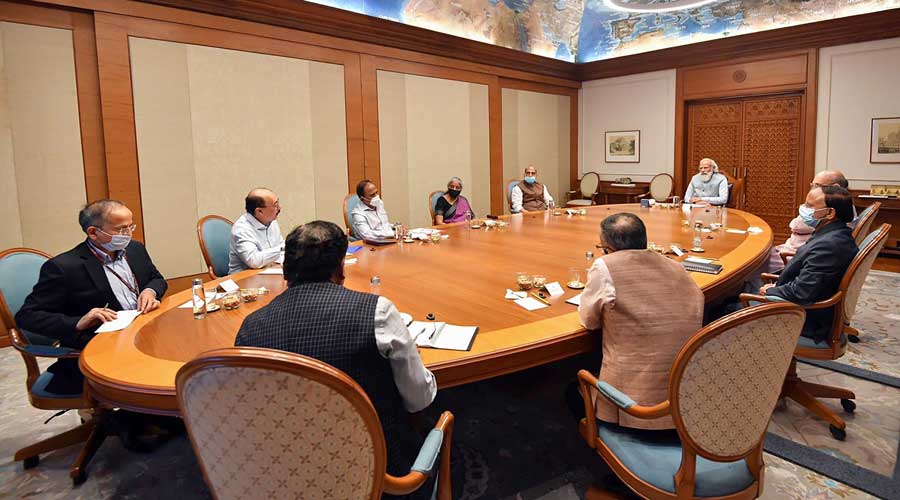The Taliban takeover of Afghanistan has left several Afghan students in India desperate for visa extensions and funding because of uncertainty not just about their careers but also their lives.
Despite assurances against reprisals by the Taliban, Afghan students currently attending online classes of Indian universities from home are keen on fleeing to India. Indian faculty in Afghan varsities have also tweeted SOS messages to be rescued from the anarchy that now prevails in that country.
Mohammad Shafiq Sultan, a finance ministry employee of the deposed regime, is awaiting the results of the final semester of MA in international relations and area studies in Jawaharlal Nehru University here. His monthly scholarship of around Rs 20,000 from the Indian Council for Cultural Relations has stopped. Sultan was on Tuesday asked to vacate his hostel room by September 22.
“I have been unable to speak to my family in Wardak province for a fortnight. Friends back home have warned me that the Taliban is investigating those who worked for the (earlier) government. They are saying do not come home as I may not have the fortune of a trial as there have been extra-judicial killings. They will persecute me as they think that I may have been brainwashed by going to India,” he told The Telegraph.
He added: “I can’t survive for more than a couple of months on savings and help from friends. I can’t afford to pay commercial rent if I am evicted from the hostel. My wages for the last two years — which I would have received once I reported back to work with my degree — are now gone as the government I worked for does not exist any more. We have been pleading with the ICCR to increase the duration of our stipend. I am confident of clearing the entrance for PhD but I can’t survive without the scholarship nor can I go back for fear of my life.”
Afghans have been the biggest beneficiaries of the ICCR scholarships with around two-thirds of all such scholarships awarded going to students from that country. At the moment, it is unclear if the new regime will continue the agreement with India under which these scholarships are given. The ICCR did not respond to queries on whether any form of relief would be given to scholarship holders in India and Afghanistan.
According to the latest All India Survey of Higher Education report of 2019-20, there were 4,504 Afghan students in India.
While institutions such as Delhi University and the Indian Institute of Technology, Bombay, have reached out to students attending online classes in Afghanistan, and facilitated their visas, the JNU has not.
In response to requests from such Afghan students and the JNU Students Union, varsity registrar Ravikesh said on Saturday that “the matter is being looked into” as Delhi’s lockdown regulations include the closure of educational institutions — a clause that does not prevent the JNU from issuing necessary documentation for them to be granted visas to complete their courses in India.
A day after the registrar’s note, Kabul was taken over by the Taliban and an exodus at the airport has made air travel difficult.
A student of sociology in the JNU, currently in Kabul, told this paper that her family was desperate for her to leave before the Taliban arrived as the possibility of her going out to study seems bleak given their track record. The power supply to her home has now stopped. “My mobile is dying… There is no way of getting out,” she said in a message to this newspaper.
Three such students have reached out to the JNUSU.
In DU that has facilitated the return of 40 students, a depreciated currency and defunct banking system has made paying guest accommodations too expensive for most students. Iqbal Ahmadzai, a BA (economics) student in Hindu College is currently staying with a well-wisher in JNU’s staff quarters. From Logar province, he spoke of the uneasy calm now as the Taliban finally won a war of attrition in his town and the shooting has stopped, but restrictions have been imposed on women travelling unaccompanied by men, as well as compulsory headscarves.
“As I am among the fortunate few to have a place to stay, it is my duty to speak up for most Afghan students who can’t afford PG accommodations. None of us have been given hostels and no reasons have been given for denying us this when we need it the most,” he said.












